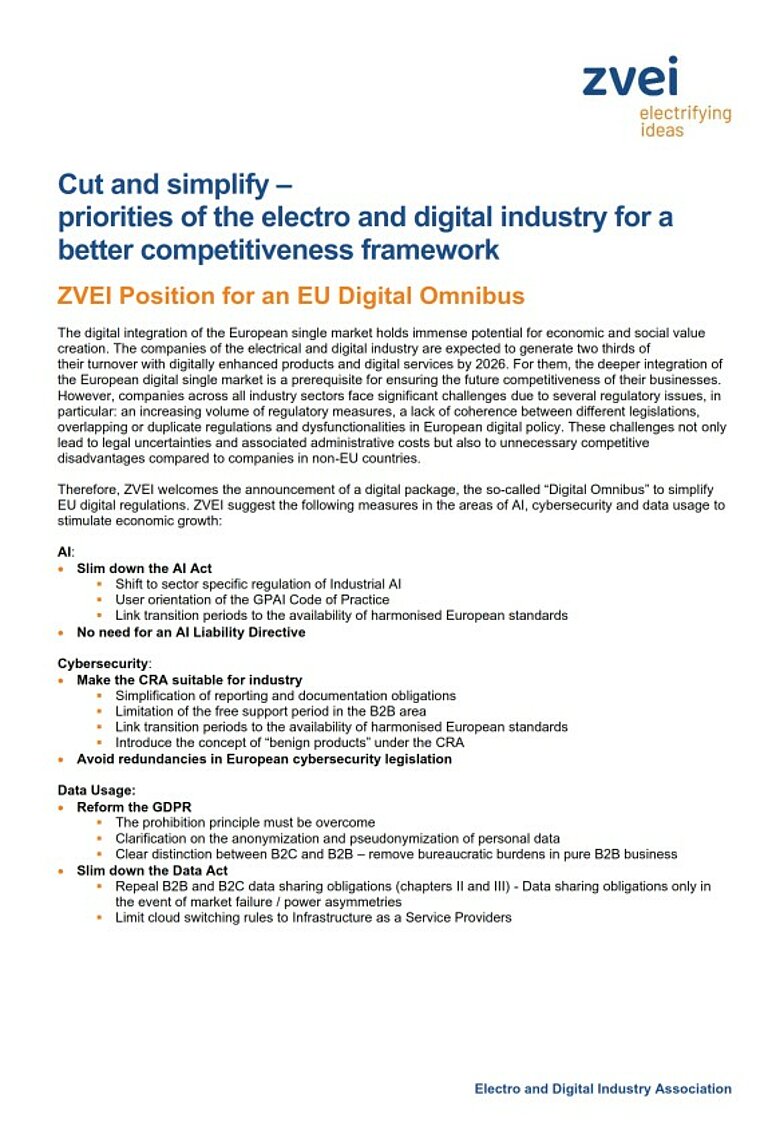Publications
![[Translate to Englisch:] [Translate to Englisch:]](/fileadmin/user_upload/Presse_und_Medien/mediathek/YouTube-Vorschaubild/NOA-Namur-Open-Architecture-Connectivity.jpg)

ZVEI has high expectations for the EU's upcoming ‘Digital Omnibus’ in terms of targeted relief and harmonisation of European digital legislation. This is because the digital industry is currently suffering from a confusing set of rules, duplicate regulations and a lack of coherent standards - with a noticeable impact on competitiveness, legal certainty and innovative strength.
In the area of artificial intelligence, ZVEI is calling for sector-specific regulation for industrial AI and its removal from the AI Act. The transitional periods of the AI Act should also be linked to the availability of harmonised European standards - with a practical implementation period of at least 24 months. The association rejects an additional AI Liability Directive.
Regarding cyber security, ZVEI is in favour of a practicable and risk-based implementation of the Cyber Resilience Act (CRA). Disproportionate documentation requirements should be reduced and exceptions introduced for technically harmless (‘benign’) products. Linking the implementation deadlines to the publication of harmonised standards is also essential.
In the area of data utilisation, ZVEI proposes a fundamental reform of the GDPR. Instead of the current prohibition principle, an ‘enabling’ understanding of data protection is needed. Legal certainty for anonymisation and pseudonymisation is just as necessary as relief for pure B2B business. ZVEI rejects a blanket obligation to share data in the Data Act - except in cases of proven market failure.
Conclusion: The ‘Digital Omnibus’ offers an opportunity to make Europe's digital regulatory framework competitive again. ZVEI calls for clear, implementable rules that enable innovation and avoid double regulation: For a digital Europe with international appeal.
The current ZVEI position paper “Cut & Simplify” can be downloaded here.